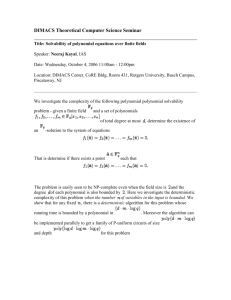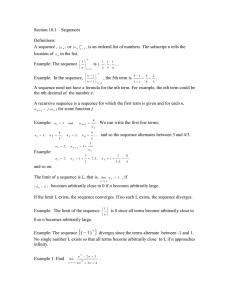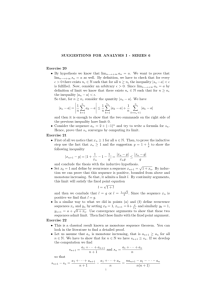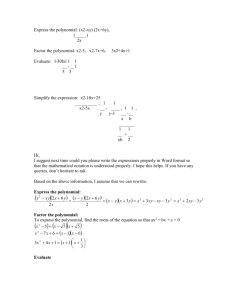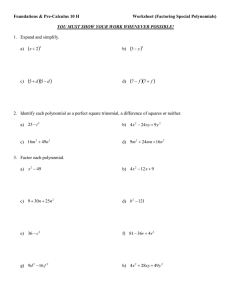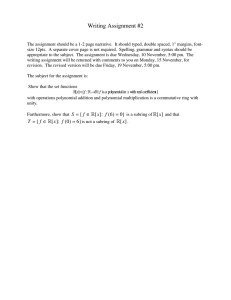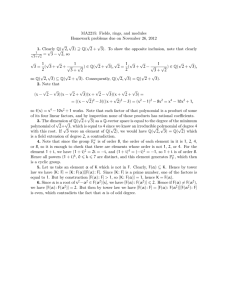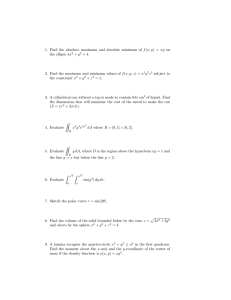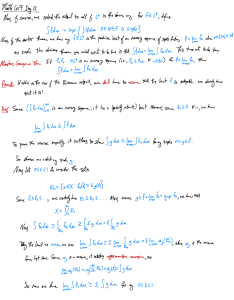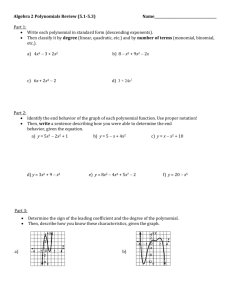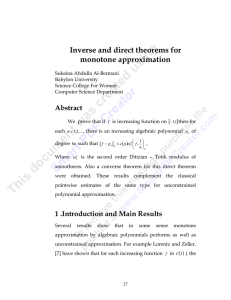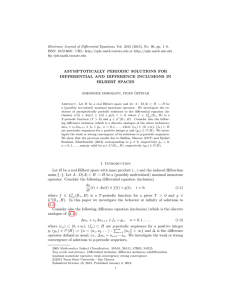7 IMC Competition th 2000
advertisement
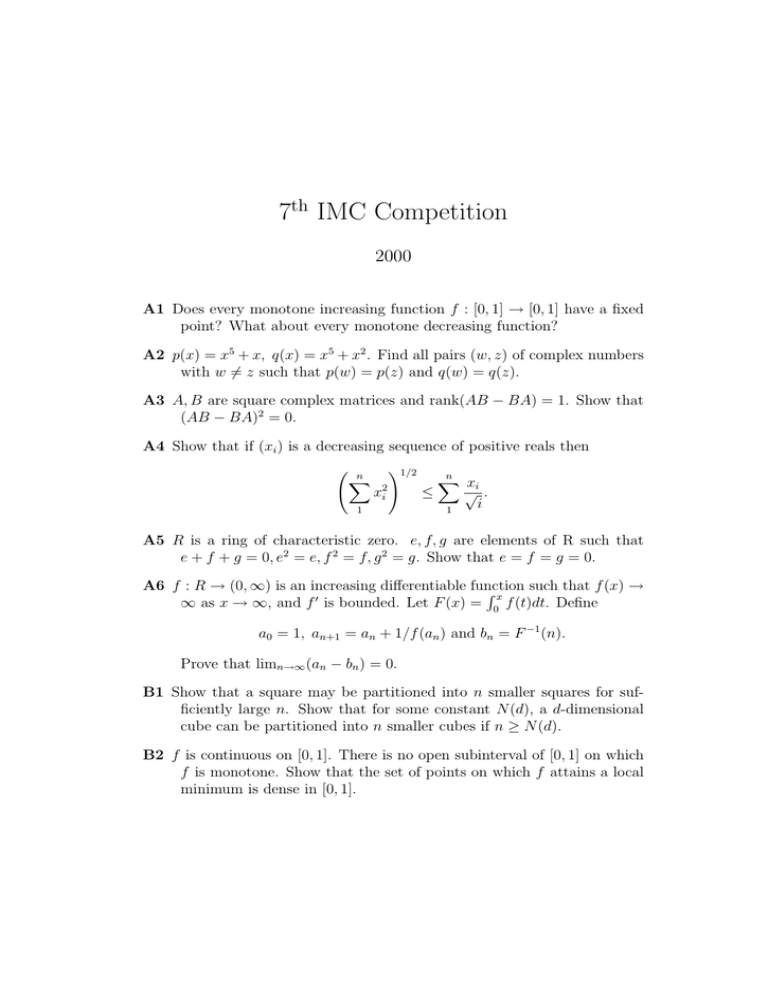
7th IMC Competition 2000 A1 Does every monotone increasing function f : [0, 1] → [0, 1] have a fixed point? What about every monotone decreasing function? A2 p(x) = x5 + x, q(x) = x5 + x2 . Find all pairs (w, z) of complex numbers with w 6= z such that p(w) = p(z) and q(w) = q(z). A3 A, B are square complex matrices and rank(AB − BA) = 1. Show that (AB − BA)2 = 0. A4 Show that if (xi ) is a decreasing sequence of positive reals then n X x2i !1/2 1 n X x √i . ≤ i 1 A5 R is a ring of characteristic zero. e, f, g are elements of R such that e + f + g = 0, e2 = e, f 2 = f, g 2 = g. Show that e = f = g = 0. A6 f : R → (0, ∞) is an increasing differentiable function such that f (x) → Rx ∞ as x → ∞, and f 0 is bounded. Let F (x) = 0 f (t)dt. Define a0 = 1, an+1 = an + 1/f (an ) and bn = F −1 (n). Prove that limn→∞ (an − bn ) = 0. B1 Show that a square may be partitioned into n smaller squares for sufficiently large n. Show that for some constant N (d), a d-dimensional cube can be partitioned into n smaller cubes if n ≥ N (d). B2 f is continuous on [0, 1]. There is no open subinterval of [0, 1] on which f is monotone. Show that the set of points on which f attains a local minimum is dense in [0, 1]. B3 p(z) is a polynomial of degree n > 0 with complex coefficients. Show that p(z) is 0 or 1 for at least n + 1 complex numbers z. B4 The graph of a polynomial of degree 6 is tangent to a straight line at A, B and C where B lies between A and C. If B is the midpoint of AC show that the area bounded by AB and the graph equals the area bounded by BC and the graph. If BC/AC = k, show that the ratio K of these areas satisfies 2k 5 /7 < K < 7k 5 /2. B5 R+ is the set of positive real numbers. Find all functions f : R+ → R+ such that f (x)f (yf (x)) = f (x + y) for all x, y. P n B6 For any m × m real matrix A, define eA = ∞ 0 A /n!. Prove or disprove that for any real polynomial p(x), p(eAB ) is nilpotent iff p(eBA ) is nilpotent.
